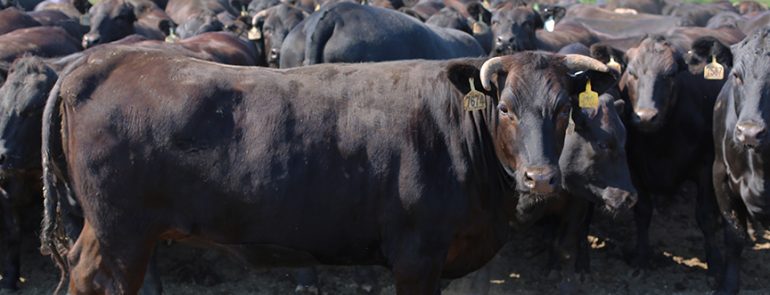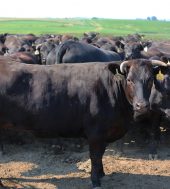What's a Wagyu?
WAGYU - a Japanese beef cattle breed – derive from native Asian cattle. 'WAGYU' refers to all Japanese beef cattle, where 'Wa' means Japanese and 'gyu' means cow.
Wagyu were originally draft animals used in agriculture, and were selected for their physical endurance. This selection favored animals with more intra-muscular fat cells – ‘marbling’ – which provided a readily available energy source. Wagyu is a horned breed and the cattle are either black or red in color.
WAGYU Breed History in Japan
There is some evidence of genetic separation into the Wagyu genetic strain as much as 35000 years ago. Modern Wagyu cattle are the result of crossing of the native cattle in Japan with imported breeds. Crossing began in 1868 after the Meiji restoration in that year. The government wanted to introduce Western food habits and culture. Brown Swiss, Devon, Shorthorn, Simmental, Ayrshire, and Korean cattle were imported during this period. The infusions of these British, European and Asian breeds were closed to outside genetic infusions in 1910.
In Japan there are four breeds that are considered Wagyu and those are the Japanese Black (the predominant Wagyu exported to the U.S), Japanese Brown (In the U.S. referred to as Red Wagyu), Japanese Polled and Japanese Shorthorn. There are no Japanese Polled or Shorthorns being bred outside Japan. Wagyu strains were isolated according to prefecture (state) and breeds imported for crossing were not the same in each prefecture.
The production of Wagyu beef in Japan is highly regulated and progeny testing is mandatory. Only the very best proven genetics are kept for breeding. Realizing the value of their unique product, the Japanese Government banned the export of Wagyu and declared them a national living treasure.
WAGYU Breed History in USA
Wagyu cattle were first imported in 1975 when two black and two red bulls were imported Morris Whitney. In 1989 the Japanese began to reduce their tariffs on imported beef and that encouraged U.S. producers to produce a high quality product for Japan. In the 1990’s there were several importations of quality Wagyu. Most were black, but a few were Red Wagyu. These cattle have the greatest influence on the U.S. herd and those in many other countries.
Most US production was exported to Japan until 2003 when BSE was discovered and Japan and other countries stopped the import of beef for the U.S. However, chefs and others in the U.S. were aware of the superior eating quality of Wagyu and the domestic market then and now utilize much of the U.S. production.

WAGYU Beef — Delicious and Healthy
The unique taste and tenderness of highly marbled Wagyu beef makes for an unrivalled eating experience. That is why Wagyu beef is finding its way into the repertoires of Gourmet cooks and fine restaurants across the US.
Not only is it a gastronomic delight, but it’s healthy for you too. Health experts have discovered the mono-unsaturated to saturated fat ratio is higher in Wagyu than in other beef and, the saturated fat contained in Wagyu is different. Forty percent is in a version called stearic acid, which is regarded as having a minimal impact in raising cholesterol levels. The profile of marbled Wagyu beef is more beneficial and healthier to human health.
Wagyu is also higher in a type of fatty acid called conjugated linoleic acid (CLA). Wagyu beef contain the highest amount of CLA per gram of any foodstuff – about 30% more than other beef breeds – due to higher linoleic acid levels. Foods that are naturally high in CLA have fewer negative health effects.
Triple Heartland Farms Wagyu is a purpose (50/50) crossbreed between Japanese Wagyu and high quality black Angus. This retains some of the traditional American flavor and adds the rich, buttery intrinsic flavors of the Wagyu. This is the most commonly found Wagyu available in America as pure Wagyu is extremely rich in flavor. We do offer further grades of Wagyu / Angus crossbred meats, up to full blood Wagyu. If you require something special, just give us a call and we will be glad to help.




